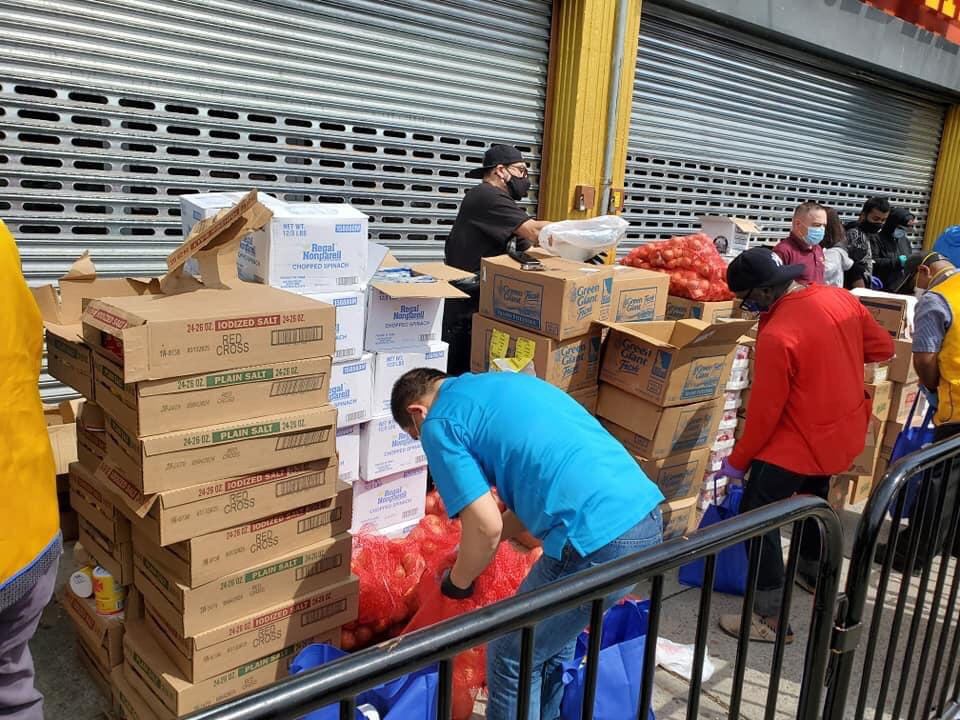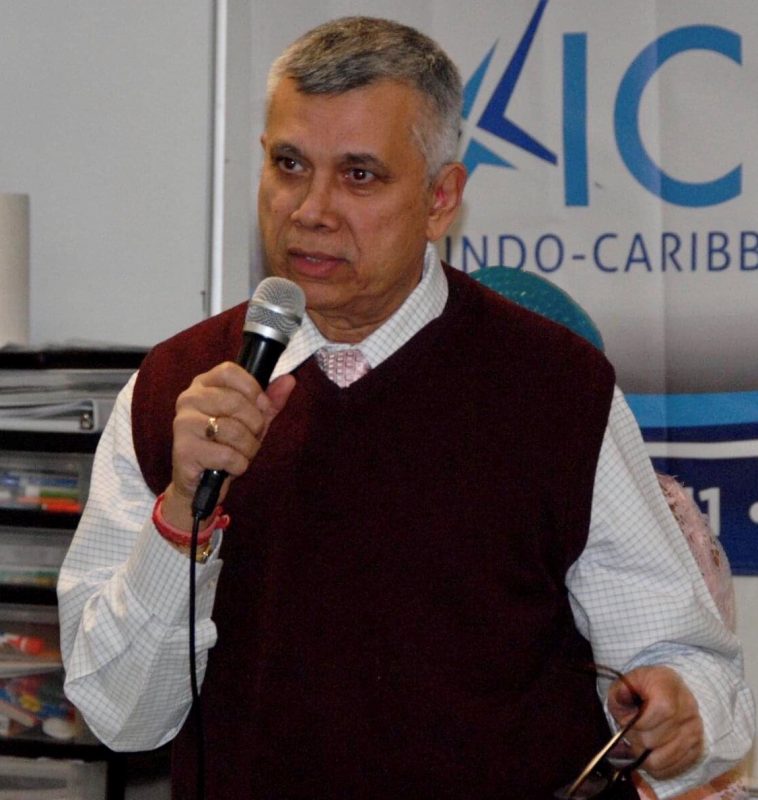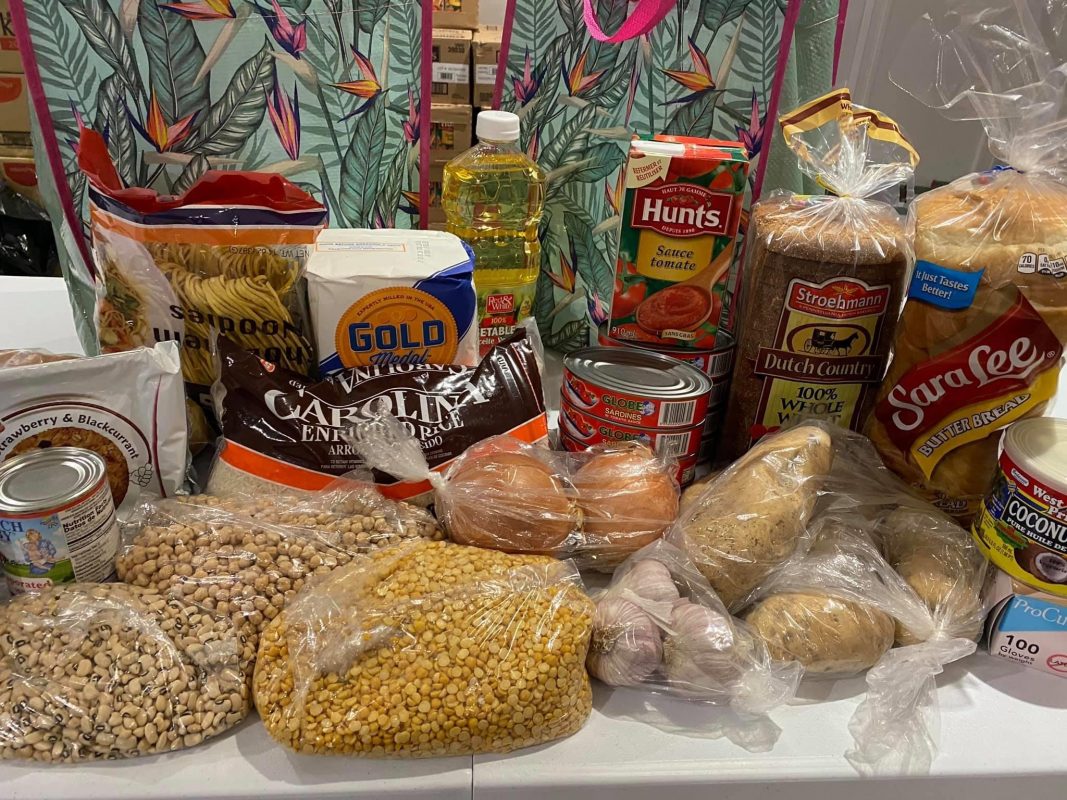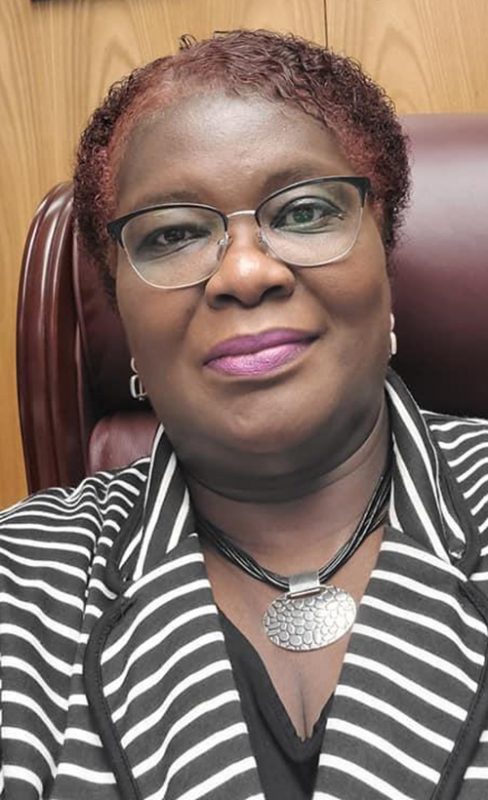Hundreds of New York-based Guyanese, many of whom are undocumented, are facing a serious financial crisis after losing their jobs due to the novel coronavirus disease (COVID-19) pandemic and are relying heavily on the distribution of food packages from various groups for their survival.
Professor Dhanpaul Narine, a community advocate, told Stabroek News that Guyanese immigrants would wait on long lines at food pantries in areas such as the Bronx, Brooklyn and Queens to receive weekly food packages.
He noted that “ever since the pandemic started food pantries have become very important in fulfilling basic needs of the immigrant communities.”
Dr. Narine and his brother, Pandit Chunelall Narine and other members of the Shri Trimurti Bhavan mandir are also playing an active role in helping immigrants.
Leaders of churches, mosques and other mandirs, as well as the Richmond Hill Lions Club and elected representatives of the various communities have been out in full force ensuring that families are fed.
On a recent Zoom forum moderated by engineer and Queen’s College alumna, Karen Wharton, titled: ‘Guyanese in the Diaspora and COVID-19,’ New York State Senator, Roxanne Persaud, a Guyanese, said the pandemic has just magnified the food insecurity that had already been affecting people in her district, especially senior citizens.
Her office, together with various non-profit, city and state organizations has been distributing food packages, masks and sanitizers but noted that it is not enough.
As the chair of social services in the senate, she is constantly working with others to ensure that everyone who is eligible for the Supplemental Nutrition Assistance Program (SNAP) benefits, is receiving them.
She pointed out that “food insecurity is real… It is a serious matter” and that her office would try with its federal partners to ensure that it is eliminated as much as possible.
Another participant the forum, Tony Singh of the Calvary’s Mission Food Pantry that would normally provide weekly food hampers to less fortunate immigrants, said during the pandemic more people have been benefiting, including “those who used to provide donations to the pantry.”
The pantry, which has been in existence for over 20 years, has over 50 volunteers who have been working daily to provide food to seniors.
He emphasized that recipients “do not need any documentation to go and uplift the food. They just need to sign when they go…”
Dr. Narine was proud that many people from the Guyanese diaspora have been on the frontline in NY, “from janitors to CEOs (Chief Executive Officers).”
He also singled out two members of his mandir; Dr. Kamini Doobay who has treated hundreds of patients as well as Vishnu Rampersaud; Director of Nursing at the Jamaica Hospital.
Undocumented immigrants
Dr. Narine was concerned that many undocumented immigrants have been experiencing symptoms of the virus but are reluctant to seek treatment for fear that the Immigration and Customs Enforce-ment (ICE) would come after them.
This issue was also addressed on the forum, with Yasmine Farhang, senior advisor for Legal Initiatives at the office of Mayor Bill de Blasio, assuring that it would not happen.
Farhang said too that there have been changes with regards to immigration as they “really want people to seek help and treatment without fear of public charge.”
She pointed out too that under the Health Insurance Portability and Accountability Act (HIPPA), health care officials cannot share information on anyone without their consent.
After the pandemic started, the Department of Homeland Security came out with a statement that ICE will not carry out enforcement at places that are deemed sensitive locations, including medical centres, clinics and hospitals.
She said too that all hospitals in NY would help patients regardless of immigration or health insurance status.
Taxpayers, including NY-based Guyanese have benefited from the US government’s US$1,200 stimulus cheques while small businesses would also be provided with economic relief.
However, there are many undocumented Guyanese immigrants who currently have no income and cannot receive the cheques. Also, SN was told that legal residents and citizens who operate small businesses were afraid that they may not benefit from the economic relief because they are married to undocumented immigrants.
But on April 16, Mayor de Blasio announced a partnership with Open Society Foundations to establish a COVID-19 Immigrant Emergency Relief Programme, with a US$20M fund that is expected to reach 20,000 documented and undocumented immigrants.
Asked to comment on the fund, which is still to get started, Farhang said it would be handled by community-based organisations that are conducting outreaches and screenings. It also would reach to diverse communities across NYC.
Stranded visitors
On the forum also, Melnia Cordis, a private immigration attorney, said visitors from Guyana who are stranded in the US can file the United States Citizenships Immigrations Services – USCIS I-539 form for an extended stay at a cost of US$455.
If they are experiencing financial difficulties, they can file a second form, I-912 to request a waiver of the fees. The two forms have to be filed together only by paper application.
Students with F-1 visas who have completed one year of studies in the US and are experiencing financial difficulties can also file for work authorization.
Visitors who want to update their status can have an immediate family member file a petition on their behalf.
Cordis said that ICE is still pursuing undocumented immigrants but only those who had committed criminal offences and not those with minor immigration violations, at this point.
Meanwhile, Barbara Atherly, Guyana’s Consular officer in NY, remarked at the forum
that while in-person service has been suspended since mid March, the consulate remains accessible by telephone, email and social media.
She noted too that the situation escalated quickly and that NYC has been the epicentre for the crisis in the US. The consulate continues to monitor the situation and continues to be guided by officials of the state for the safe reopening of their operations.
She encourages everyone to adhere to the guidelines of washing hands frequently, social distancing and wearing masks when outside.









